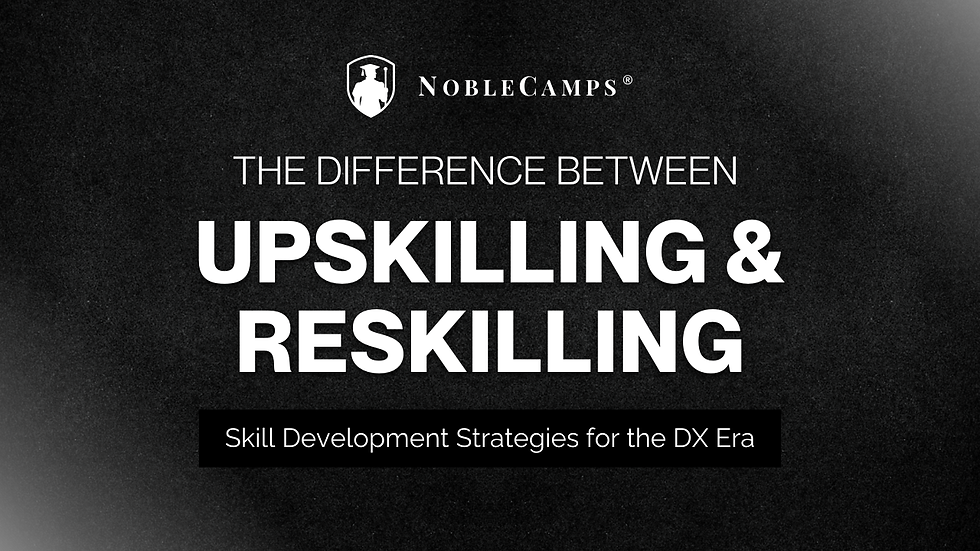What is Culture Transformation? Driving Organizational Change and Development in Japanese Companies
- Aug 31, 2025
- 7 min read
Updated: Sep 13, 2025

In today’s global business landscape, the term “Culture Transformation” is gaining significant attention, especially among leading international companies. But this is far more than just a trendy buzzword.
As technology evolves and market dynamics accelerate in 2025, culture transformation has become an essential initiative for organizations that want not only to survive but also to achieve sustainable growth.
By rethinking core values, behaviors, and decision-making processes, companies can adapt to rapid change and build a culture that truly supports long-term success.
What Culture Transformation Means
Culture Transformation refers to the process of evolving the very foundation of an organization’s culture.
Here, “culture” does not only mean the atmosphere within the company—it includes employees’ values, behaviors, leadership styles, and the principles that guide decision-making. Simply changing systems or processes often leads to surface-level improvements, but true transformation requires reshaping the underlying culture itself.
For example, even if a company shifts to a performance-based evaluation system, innovation will remain limited if the culture still discourages risk-taking or treats failure negatively.
On the other hand, when a culture embraces challenges and encourages learning from mistakes, employees feel empowered to experiment with new ideas, ultimately accelerating innovation and growth.

In this article, we will explore why Culture Transformation is becoming increasingly essential for Japanese companies, especially in comparison to global best practices, and how organizations can take practical steps to achieve lasting cultural change.
Why Japanese Companies Need Culture Transformation Now
The need for Culture Transformation in Japanese companies has never been greater. Several key factors are driving this shift.
Factor 1: Japan’s Aging and Shrinking Workforce
One of the most pressing reasons is the demographic challenge of an aging population and the steady decline of the working-age population. According to Japan’s Ministry of Internal Affairs and Communications, the working-age population (ages 15–64) peaked in 1995 and has been on a downward trend ever since.
Projections suggest that this decline will continue in the coming decades.
This demographic reality means that securing talent is becoming increasingly difficult across industries, from manufacturing to services. In such an environment, relying solely on traditional models that prioritize “employees who can work long hours” or “those who can fully conform to existing corporate culture” poses significant risks.

With fewer workers available, the real challenge for Japanese companies lies in how to embrace diversity, accept different work styles, and create a corporate culture where individuals can fully demonstrate their strengths.
Building such an inclusive and adaptable culture is directly linked to the long-term growth and competitiveness of organizations in Japan.
Factor 2: Changing Values of Younger and Global Talent
The second major factor, closely tied to Japan’s demographic challenges, is the shifting values of younger generations and global talent.
For millennials and Gen Z, work is no longer just about salary—it’s about purpose, flexibility, and work-life balance. Many young professionals now consider whether a company offers remote or flexible work arrangements as a decisive factor in choosing or staying with an employer.

At the same time, global talent—especially those with international experience—are increasingly seeking organizations that value diversity and reward performance fairly.
Traditional Japanese corporate practices, such as seniority-based promotion and rigid work styles, often fail to resonate with these expectations. As a result, Japanese companies risk losing their appeal in the global talent market if they remain tied to outdated cultural norms.
To attract and retain top talent over the long term, Japanese companies must embrace Culture Transformation. This means moving beyond policy tweaks and instead reshaping the organizational culture itself into one that is more open, flexible, and inclusive.
Factor 3: Driving Digital Transformation (DX)
Another critical reason why Culture Transformation is essential for Japanese companies today is the rapid push for Digital Transformation (DX).
In recent years, the need for DX has grown dramatically, driven by the rise of AI, cloud technologies, and data analytics, which enable organizations to streamline operations and create new business opportunities.
However, many companies in Japan stop at simply implementing tools, without adapting their organizational culture or workstyles to fully leverage these technologies.
This often leads to challenges such as employees struggling to use new systems effectively, or hierarchical decision-making processes slowing down the adoption of innovative solutions.

The true essence of Digital Transformation lies not in technology alone, but in fostering a culture that empowers people to embrace change, learn continuously, and experiment with new ideas.
Leading global companies are already coupling digital adoption with agile culture shifts, enabling employees to take initiative and drive innovation from the ground up.
For Japanese companies to successfully advance DX, they must go beyond technology deployment and focus on building a flexible culture and nurturing talent who can thrive in diverse, fast-changing environments.
Factor 4: Intensifying Global Competition
The final factor driving the need for Culture Transformation in Japanese companies is the intensification of global competition. As markets and technologies evolve at unprecedented speed, Japanese organizations are no longer competing solely within domestic boundaries—they are constantly challenged by international players.
In particular, global companies in the digital sector are rapidly introducing innovative business models and services, often threatening the traditional competitive advantages that Japanese firms once enjoyed. This heightened competition requires Japanese organizations to adapt faster than ever before.
At the same time, globalization makes collaboration with overseas offices and the recruitment and development of international talent indispensable.
To succeed on the world stage, companies must cultivate an organizational culture that embraces diversity, respects different values, and unites people from varied backgrounds toward shared goals.

In this context, holding on to a traditional, homogeneous workplace culture can hinder competitiveness.
By fostering a flexible, open, and adaptive culture, Culture Transformation becomes a powerful means for Japanese companies to thrive in an increasingly globalized and competitive environment.
Cultural Challenges in Japanese Companies
When it comes to driving Culture Transformation, Japanese companies face a number of unique organizational challenges. One of the most significant is the persistence of seniority-based systems and lifetime employment practices. While these approaches once provided stability, they often slow down decision-making, limit the effective utilization of diverse talent, and create barriers to fostering innovation.
Another challenge lies in the rigid, hierarchical structures that make it difficult for new ideas from the frontline to reach top management. This delay in decision-making can result in missed opportunities and, ultimately, a decline in competitiveness in today’s fast-moving global market.
In addition, a lack of psychological safety is still an issue in many organizations. Employees may feel hesitant to voice their opinions, which not only suppresses creativity but can also increase risks such as workplace harassment and high employee turnover.
The continued emphasis on mandatory in-office work further compounds these challenges. As younger generations and global talent increasingly value flexibility and work–life balance, rigid attendance expectations may discourage them from joining or staying with Japanese companies.
These issues cannot be resolved simply by adjusting policies on the surface. True and lasting change requires rethinking the organizational culture itself. Only through a commitment to Culture Transformation can Japanese companies achieve sustainable growth and effectively adapt to change.
Success Stories: Japanese Companies Leading Culture Transformation
Companies that have embraced Culture Transformation in Japan are already showing signs of success. These examples highlight how organizations can drive meaningful organizational change by addressing both systems and culture.
Fujitsu, for instance, has introduced a job-based HR system and hybrid work arrangements for its 45,000 employees. This shift represents a significant reform in traditional work practices, enabling greater flexibility and performance.
Shiseido, on the other hand, has made progress by promoting global talent and embedding a culture that values diversity. By moving beyond conventional models and embracing inclusive practices, the company is creating an environment where innovation can thrive.
What these cases have in common is clear: successful Japanese companies are not only revising policies but also transforming their corporate culture.
It is this combination of system reforms and cultural change that ensures sustainable growth and resilience in a rapidly evolving business environment.
Steps to Achieve Culture Transformation
Successfully achieving Culture Transformation requires more than slogans or short-term initiatives. To build a sustainable organizational culture, companies need a structured, step-by-step approach that embeds change into the very foundation of how they operate. Below are the key steps that support lasting organizational change.
Step 1: Redefine the Vision
The starting point is for leadership to clearly articulate the organization’s future vision. By defining and communicating the company’s purpose and goals, all employees can align in the same direction and work toward shared objectives.
Step 2: Strengthen Internal Communication
Embedding a new culture requires open, two-way communication. Organizations must create mechanisms that allow employees to share opinions across departments and hierarchies, fostering an environment where people feel psychologically safe to speak up.
Step 3: Develop Leadership
Effective leaders are essential for driving culture change. Companies must cultivate leaders who can protect psychological safety, inspire their teams, and support individual growth. Strong leadership development accelerates the success of culture transformation.
Step 4: Reform Systems and Policies
Cultural change cannot take root without revisiting organizational systems. Introducing performance-based evaluation systems and flexible work arrangements ensures that company values are aligned with institutional practices, making transformation more sustainable.
Step 5: Promote Continuous Learning
Culture transformation is not a one-time project. Ongoing learning is critical. Companies should build an environment that supports continuous skill development, encourages experimentation, and fosters resilience, ensuring employees embrace change as part of their career growth.
By executing these steps in sequence, organizations can cultivate a flexible and resilient corporate culture, positioning themselves for sustainable growth even in a rapidly changing business environment.

Conclusion
For Japanese companies to achieve sustainable growth, simply revising systems or policies is not enough. What is truly needed is a transformation of the organizational culture itself, encompassing employee mindsets, values, and ways of working.
Improvements in employee retention, the acceleration of innovation, and higher productivity all begin with Culture Transformation. By reshaping the culture at its core, companies can build resilient organizations capable of adapting to today’s rapidly changing business environment and driving long-term success.
Organizational Development Consulting by NobleCamps
At NobleCamps, we provide hands-on Organizational Development Consulting designed to drive true Culture Transformation. Rather than simply changing systems, we focus on reshaping the underlying culture that defines how people think, act, and lead. Our services cover key areas such as:
Organizational Culture Assessment & Analysis: Gaining an objective understanding of the current state and identifying critical challenges.
Leadership Development Training: Building leaders who foster psychological safety and cultivate a global mindset.
Workshop-Based Culture Training: Interactive sessions that engage employees directly and encourage behavioral change.
Hybrid Work Implementation Support: Designing and operating systems that enable flexible, sustainable workstyles.
Integration with Business Bootcamps: Reinforcing cultural transformation through practical, hands-on skills development programs.
NobleCamps focuses not just on “changing systems,” but on rebuilding culture from the ground up. With our expertise in corporate training and organizational change, we help companies strengthen their foundations and accelerate growth in an ever-evolving business environment.
If your company is ready to evolve its organizational culture and accelerate the growth of next-generation talent, consider NobleCamps’ Organizational Consulting and Business Bootcamps.
Together, we can build a future-ready organization in Tokyo and beyond—one that develops leaders, strengthens corporate training, and thrives in a global business environment.



